OPINION: Reluctant reflection: My journey into Germany’s Jewish future
Anxiously travelling to Germany for the first time, Michelle Rosenberg found a city still haunted by its past despite efforts to move into the future.
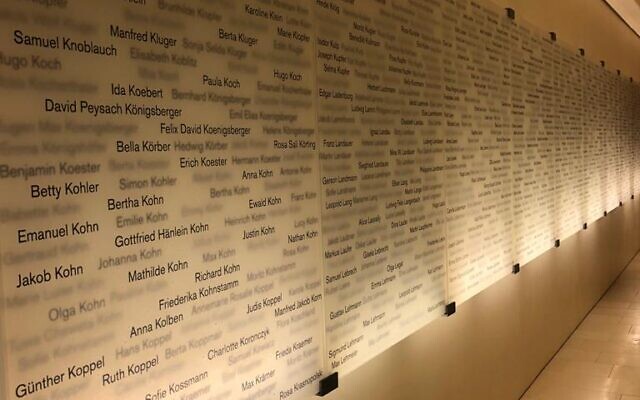
I’m not sure what my late grandmother would have thought.
Around the table on Friday nights when she was alive, and conversation turned as it always did, to the Jewish people, we all were adamant that we would never travel to Germany. We didn’t even use the word ‘visit’ because that seemed too flippant, too touristy.
Yet here I was, despite a panic attack the day prior and serious thoughts of cancelling, on a Lufthansa flight to Munich for the celebratory launch of the new headquarters of the Conference of European Rabbis (CER).
In an historic move, the organisation had decided, (courtesy of Brexit) to move their base of operations from London to Germany. It was being hailed as a positive and welcome step for German and Munich Jewry.
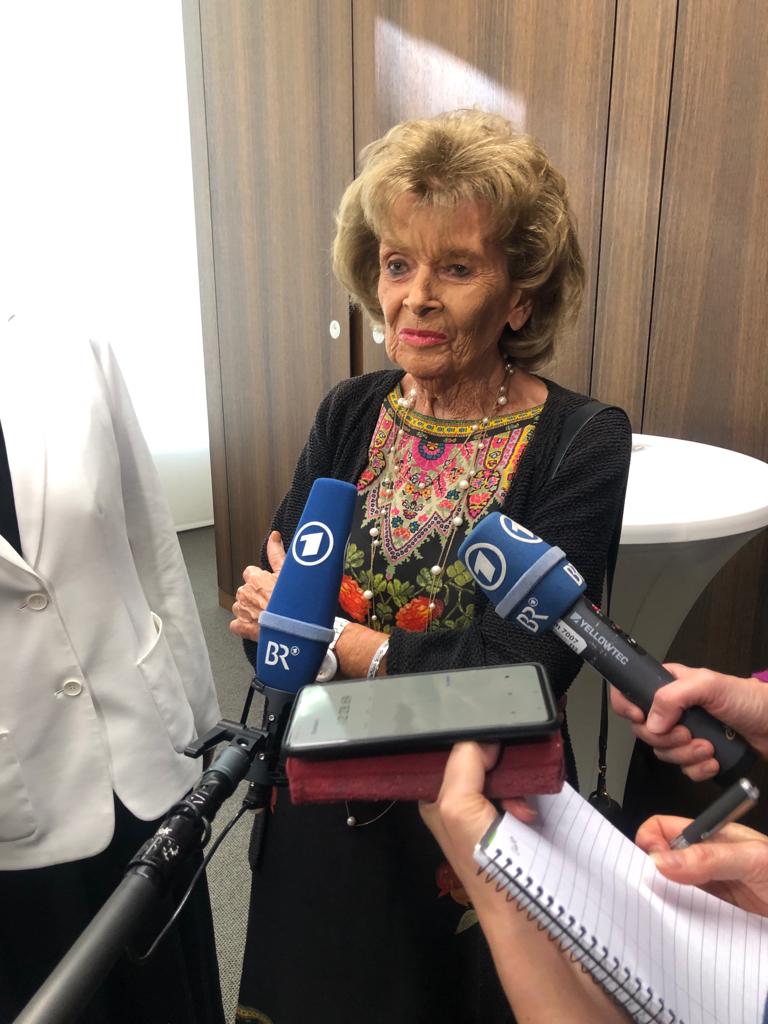
From the instant I touched down in Munich, everything I saw proved a trigger point. It was impossible not to view everything through an historic prism. My glasses could have been a black and white filter to the past.
Airport arrivals were extremely efficient in moving swathes of people in different directions. Triggered. On the drive from the airport, we passed through thick woodland.
Instead of trees, I saw the last living moments of Jews murdered in forests across Europe.
From the instant I touched down in Munich, everything I saw proved a trigger point. It was impossible not to view everything through an historic prism. My glasses could have been a black and white filter to the past.
Tall manufacturing towers looked horrifically ominous. The driver must have been in his 60s and I wanted to ask what his father had done in the war.
I felt sick when we passed signposts for Nuremberg.
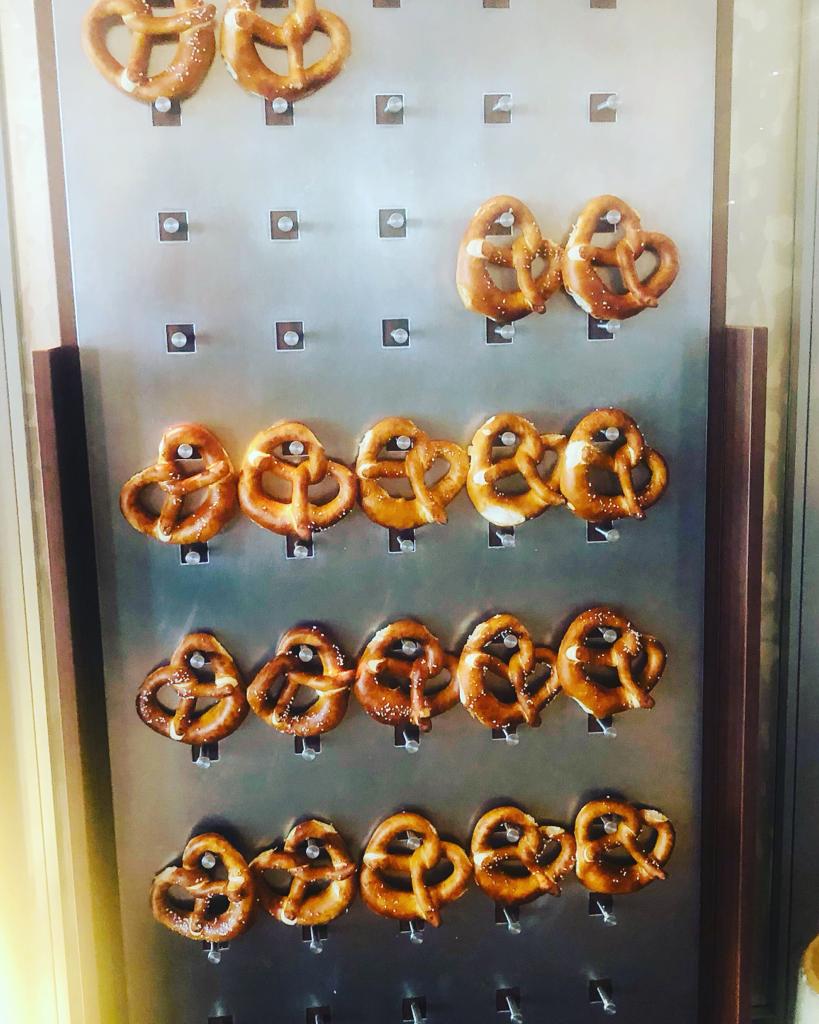
As a teetotal Londoner (the irony), I was one of the few visitors not in Munich for the Oktoberfest beer festival. (Held in September this year to avoid the more chilly October weather, apparently).
The lobby of the Westin Grand hotel was full of men in full-on lederhosen, felt hats with feathers and women in traditional dirndl dresses – a tight fitting bodice worn over a white shirt.
There was also a random man wandering around in a dressing gown heading for a ‘help yourself’ Bavarian pretzel wall.
Curiouser and curiouser.
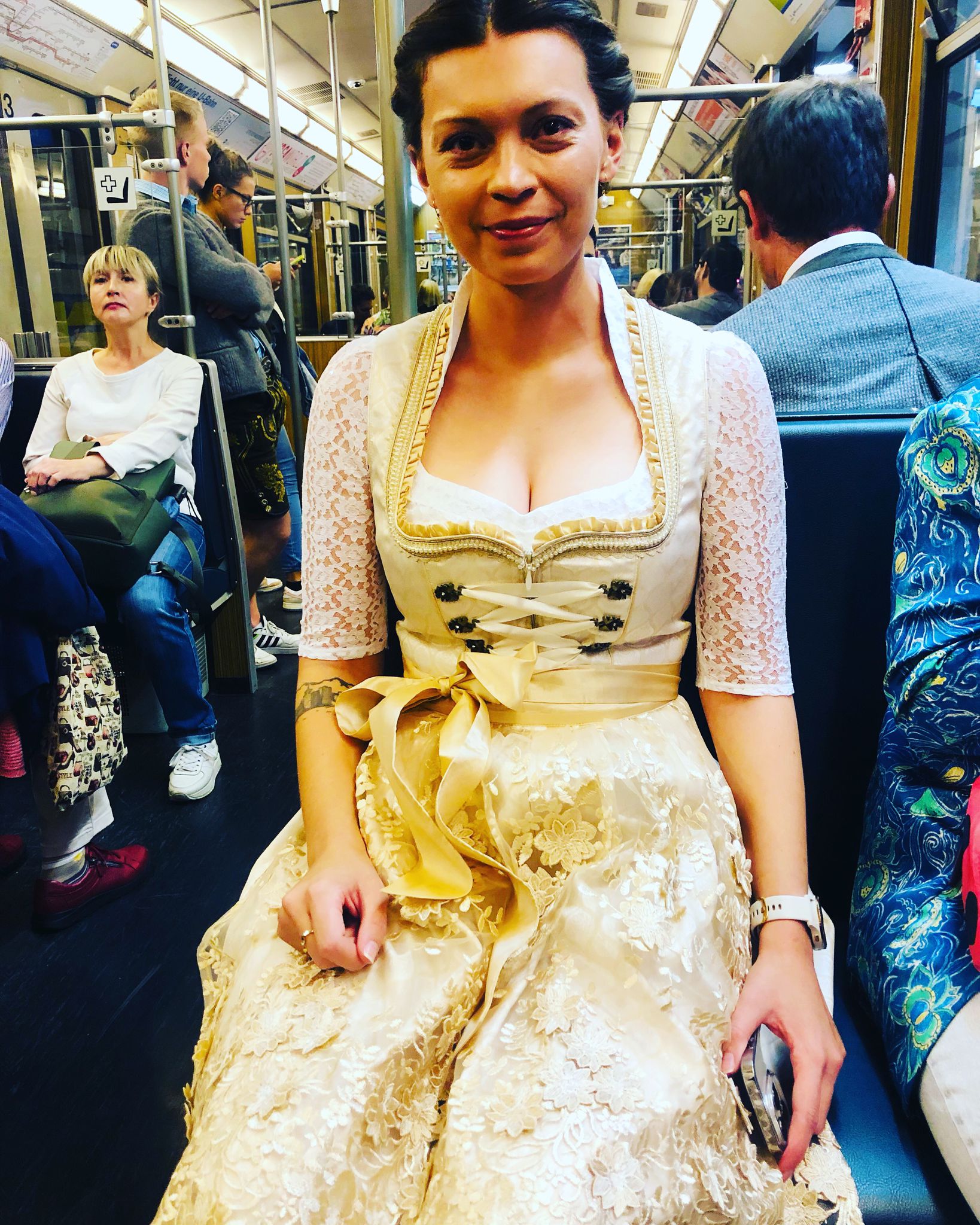
Walking to the Arabellapark metro station, a man beside me asked if I was here for the beer festival. “No,” I said. “I’m going to a Jewish history event.”
A slight pause before a response of “Well, that’s a bit different then.”
Trains and trams – quick, methodical, well-organised. The buildings en route to the CER Jewish centre were clean, grandiose and very new (not surprising considering an estimated 50% of the city was bombed to oblivion during World War Two).
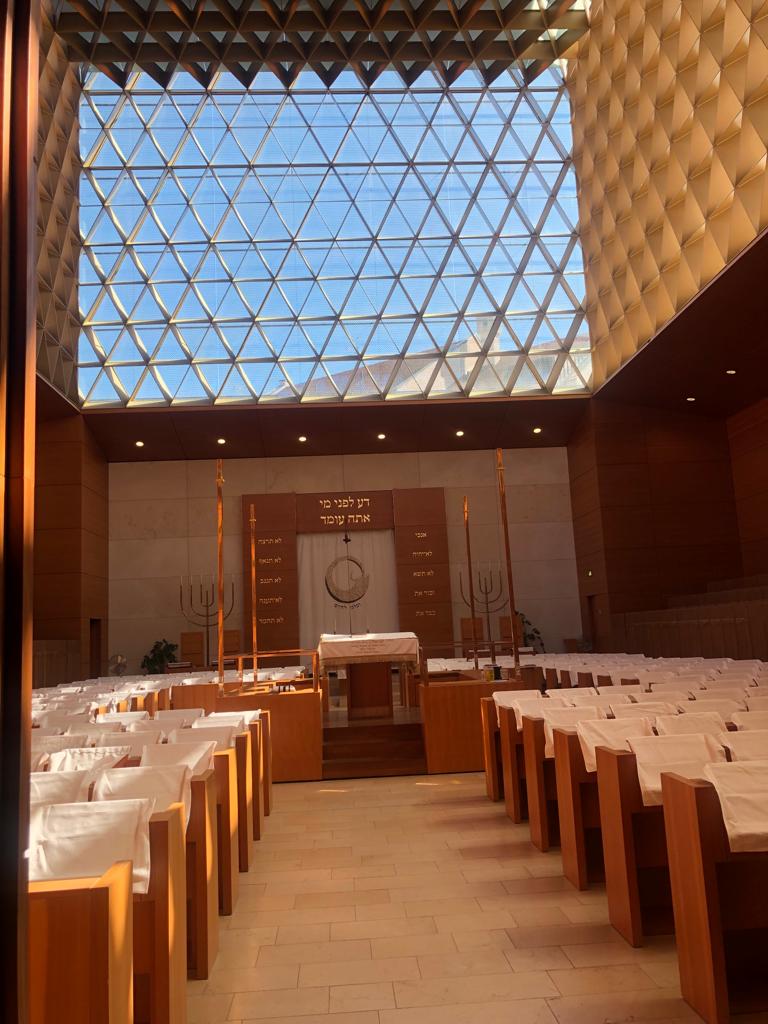
At the official opening of the building, a petite 91-year old woman held centre stage. Described by one guest as the ‘Iron Lady’ of the Jewish community in Munich, she was the indomitable Charlotte Knobloch, president of the Jewish community of Munich and Bavaria, who survived the Holocaust in hiding with a Christian family.
She is widely credited with the revival of the Jewish community here, thought to number around 9,000.
Presiding over a table of male officials and dignitaries including CER President Chief Rabbi Pinchas Goldschmidt, she addressed the audience in German, saying: “I’m still overwhelmed. This is a dream. To have a centre of Jewish life in Europe. Together we can withstand the challenges of our time. Bavaria is where the heart of European Jewish life beats. My home city is now again an important centre of Judaism.”
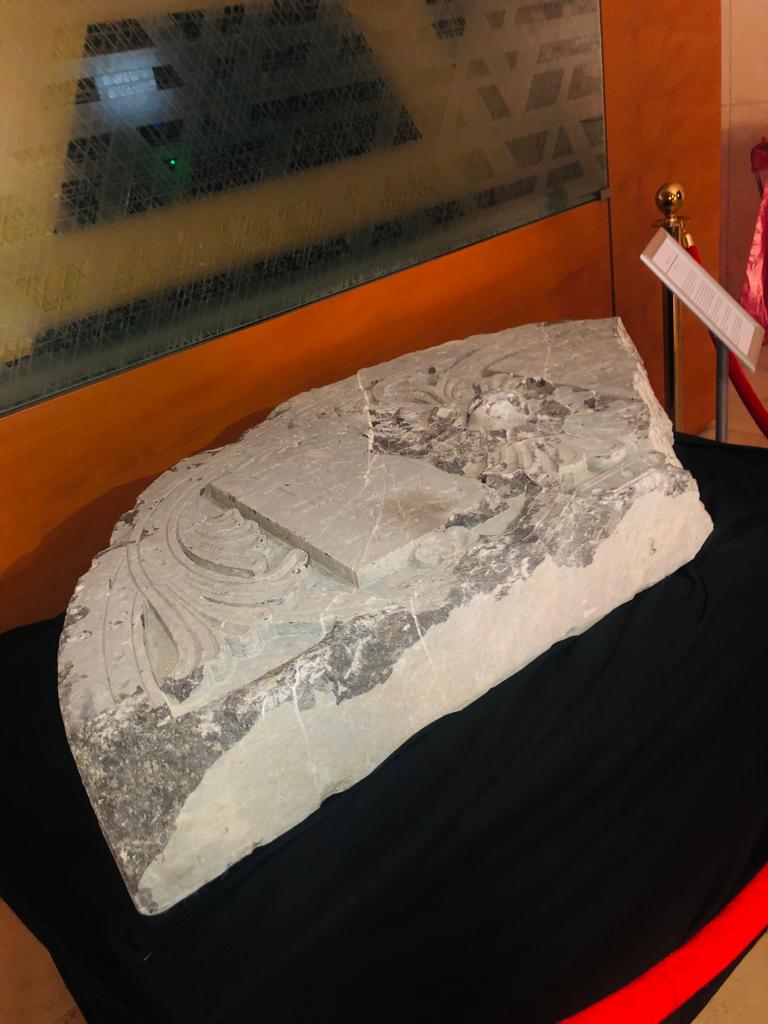
Rabbi Goldschmidt said he linked the historic event to the new year, adding: “We thank God that we have come to see this day. It is a blessing of God. It is our duty to come back to Germany. We are here to contribute to rebuilding Jewish life in Germany.”
Dr Florian Herrmann, MP, head of the Bavarian State Chancellery and Bavarian state minister for federal affairs and media called the opening of the building and an international Jewish organisation choosing to move to Germany “a genuine milestone for Jewish life in Bavaria.”
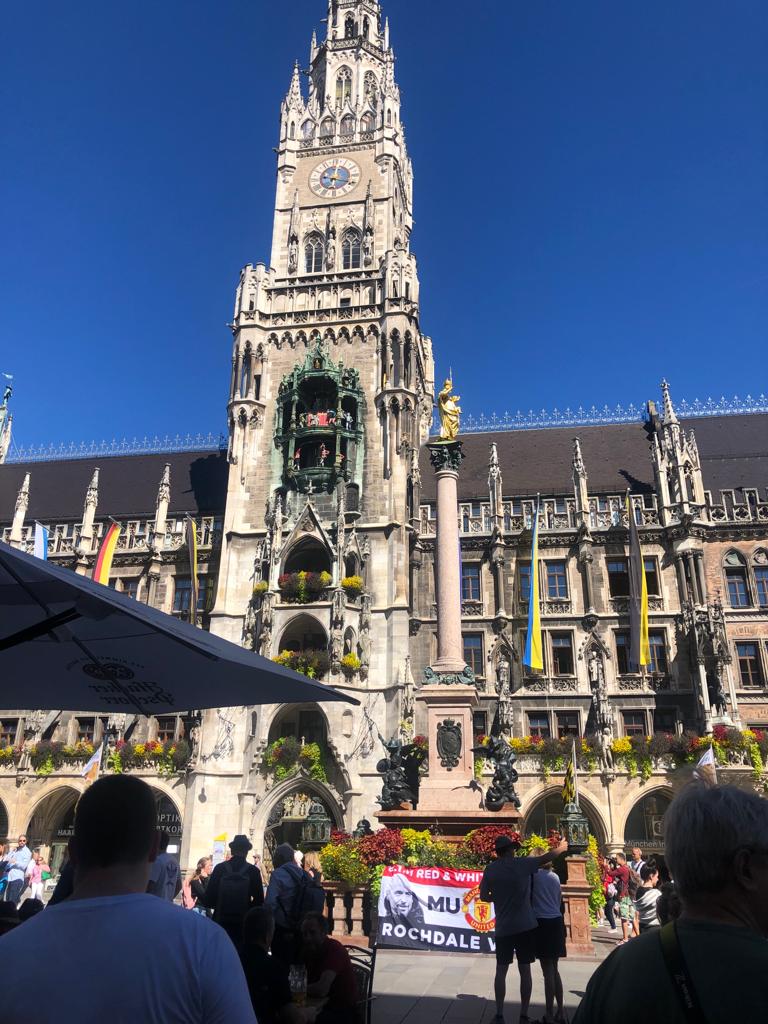
While the move is certainly historic, there is still a lot of work to be done. The Jewish Museum, owned not by the Jewish community but by the state authorities, was eerily quiet.
Accompanied by a French Jewish journalist, I ventured around the exhibits, the cartoons of Jordan B. Gorfinkel, “Everything’s Relative” perfectly encapsulating the fears of German Jewry.
The Jewish cultural centre opposite, guarded by security guards (just some of the young Israelis who have chosen to move to Germany), has the city’s only kosher restaurant, where you can get a challah.
There is no kosher butcher. No traditional Jewish bakery.
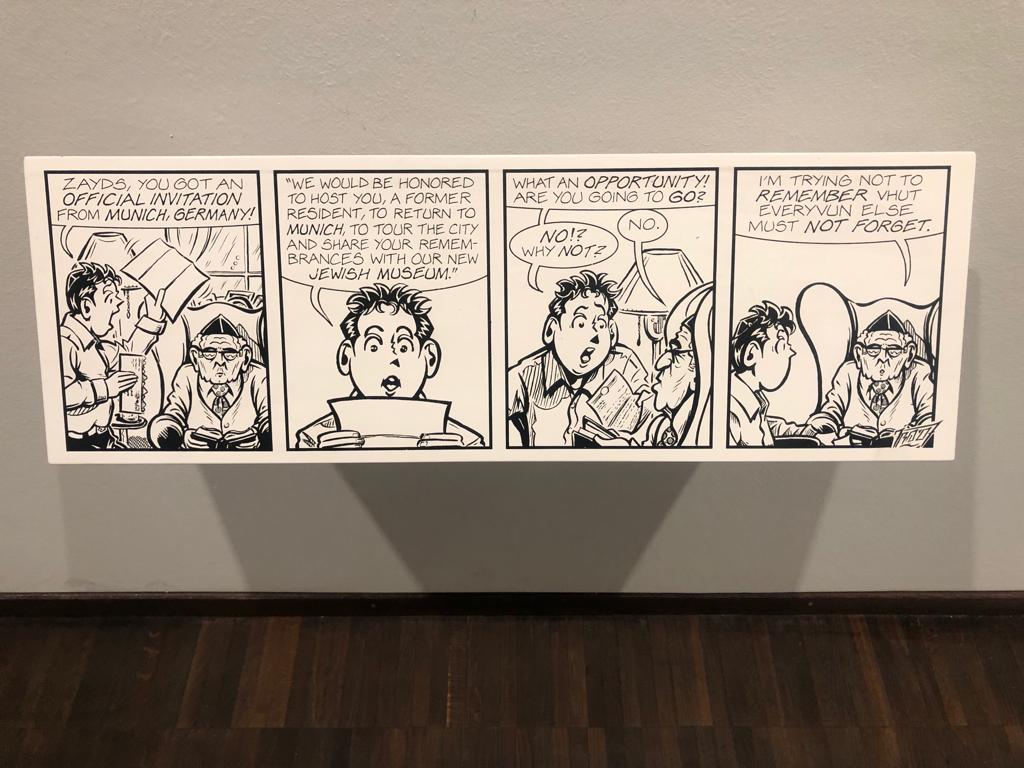
It seems bizarre to me that life here goes on as normal. It feels surreal that it can do so after the horrors of the past. New buildings constructed over old, but for me shadows in every corner.
But antisemitism never disappears. It is ever-present and has re-emerged in Germany in the form of the ever-rising far right, namely the Alternative for Germany party, or AfD.
The Jewish Telegraph Agency reports that since its creation in 2013, it has doubled its membership to 32,000. It garnered 10% of the vote in the 2021 federal elections and polls for the forthcoming 2023 state elections in Bavaria place it with 13.9%.
That’s a nearly four percent increase in two years. One of the reasons President Knobloch has a retinue of security officers at all times is because of threats made to her life by neo-Nazis.
And yet. My choosing not to go to Germany would have been an opt-out. The CER’s decision to transfer its HQ to Munich may have strong roots in the financial implications of the fallout of Brexit, but it’s a brave and bold move.
In order for Jews to survive, we must look to the future and determinedly, defiantly and courageously rebuild our once thriving communities while remembering and never forgetting nor forgiving the past.
Perhaps this is best illustrated by the Ohel Jakob synagogue opposite the Jewish community centre. Built in 2003, it sits in St. Jakobs Square, a short distance from where the city’s original main synagogue stood before its violent destruction in June 1938, five months before Kristallnacht.
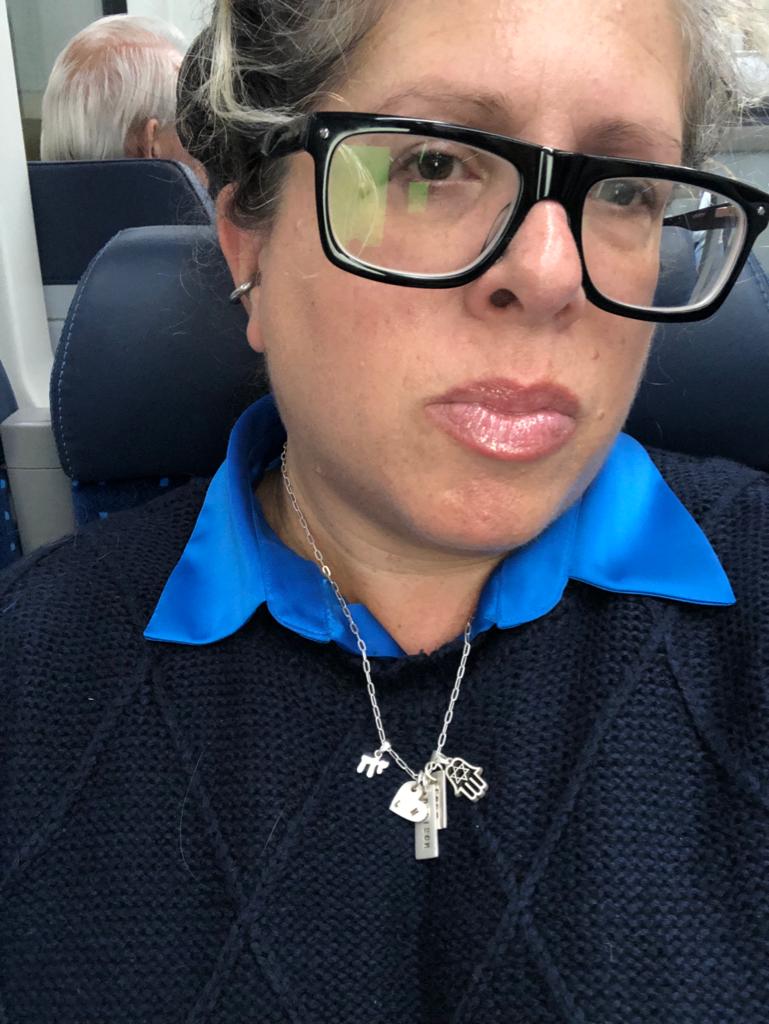
Guided through the underground tunnel that links the community centre to the shul, (a practicality created for security reasons and to protect the memorial wall in commemoration of the 4,000 Jews from Munich murdered in the Holocaust), visitors come face to face with history.
For, outside of the main prayer hall is a thick slab of stone; it is a centre stone remnant from that original synagogue destroyed in 1938. The new alongside the old. An opportunity to contemplate the sacred preservation and conservation of Jewish history before walking into a pray hall with room for 550, defiantly inaugurated on November 9th 2006, the night of the 68th anniversary of Kristallnacht.
“Perhaps,” I had ventured to President Knobloch in the press conference, mentioning my family’s vow of never coming to Germany, my not having come “would be doing a disservice to the efforts of those looking to rebuild the future of the Jewish community in Germany, whilst never forgetting about its past.”
That night, 78 years after the end of the war and the murder of six million Jews, I ate by myself. A Jewish woman alone at a cafe in Munich. Who would have thought? Certainly not my grandmother.

Thank you for helping to make Jewish News the leading source of news and opinion for the UK Jewish community. Today we're asking for your invaluable help to continue putting our community first in everything we do.
For as little as £5 a month you can help sustain the vital work we do in celebrating and standing up for Jewish life in Britain.
Jewish News holds our community together and keeps us connected. Like a synagogue, it’s where people turn to feel part of something bigger. It also proudly shows the rest of Britain the vibrancy and rich culture of modern Jewish life.
You can make a quick and easy one-off or monthly contribution of £5, £10, £20 or any other sum you’re comfortable with.
100% of your donation will help us continue celebrating our community, in all its dynamic diversity...
Engaging
Being a community platform means so much more than producing a newspaper and website. One of our proudest roles is media partnering with our invaluable charities to amplify the outstanding work they do to help us all.
Celebrating
There’s no shortage of oys in the world but Jewish News takes every opportunity to celebrate the joys too, through projects like Night of Heroes, 40 Under 40 and other compelling countdowns that make the community kvell with pride.
Pioneering
In the first collaboration between media outlets from different faiths, Jewish News worked with British Muslim TV and Church Times to produce a list of young activists leading the way on interfaith understanding.
Campaigning
Royal Mail issued a stamp honouring Holocaust hero Sir Nicholas Winton after a Jewish News campaign attracted more than 100,000 backers. Jewish Newsalso produces special editions of the paper highlighting pressing issues including mental health and Holocaust remembrance.
Easy access
In an age when news is readily accessible, Jewish News provides high-quality content free online and offline, removing any financial barriers to connecting people.
Voice of our community to wider society
The Jewish News team regularly appears on TV, radio and on the pages of the national press to comment on stories about the Jewish community. Easy access to the paper on the streets of London also means Jewish News provides an invaluable window into the community for the country at large.
We hope you agree all this is worth preserving.





















